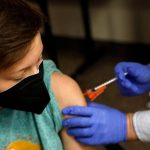Research study identifies key target in treatment-resistant hemophilia A
Researchers at Children’s Hospital of Philadelphia (CHOP) have identified a key target that may be responsible for treatment failure in about 30% of patients with hemophilia A. The target, known as B cell activating factor (BAFF), appears to promote antibodies against and inhibitors of the missing blood clotting factor that is given to these patients to control their bleeding episodes. The findings, published in the Journal of Clinical Investigation, raise the possibility of using anti-BAFF therapies, potentially in combination with immune tolerance therapies, to tame the immune response in some patients with severe hemophilia A.










